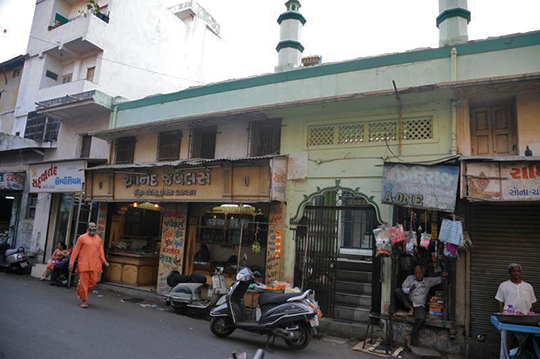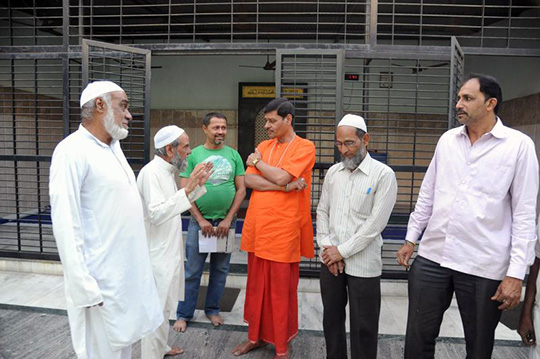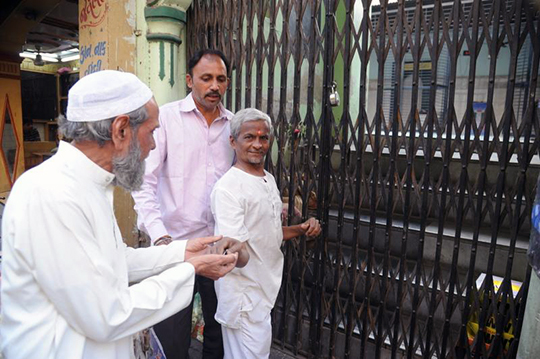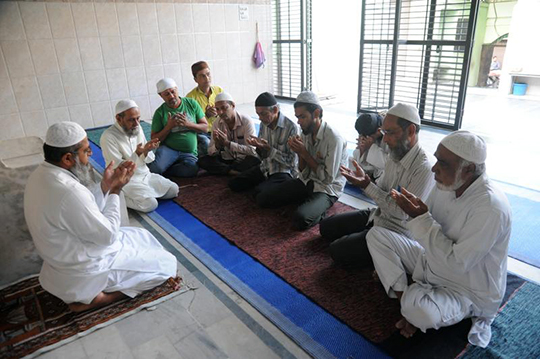Ahmedabad, Feb 26: The call to prayer from the mosque near Bakri Pol in the communally sensitive Kalupur area is no ordinary azaan. Heard for the first time in 30 years in March 2016, it signifies the voice of compassion and respect drowning out hatred. Kalupur, a patchwork of Hindu and Muslim ghettos, was bloodied by communal riots in 1984. Since the nearly 100-year-old mosque is located in a Hindu locality — near Ramji, Nagdalla Hanuman, and Shesh Narayan temples — Muslims began to avoid it to avert troubles.

Polarization intensified during the riots that broke out after the demolition of the Babri Masjid in 1993. By then the Kalupur mosque was overrun with foliage and had begun to crumble.
Paradoxically, after the communal riots of 2002, which had riven Gujarat, residents around the mosque were moved by a collective, voluntary desire to save it. Hindus reached out to their Muslim brethren, cleared the wild foliage, and contributed resources for repairs. The mosque reopened in March 2016. A year later, people in the neighbourhood affirm that the reconstruction effort has cemented bonds between communities. So much so, one set of keys to the mosque has been entrusted to Hindus.
"One set of keys is with Poonam Parekh and Kaushik Rami who sell flowers near the mosque," said Aziz Gandhi, social worker in Dariapur. Rami said he lights incense sticks twice a day near the mosque. "We are happy that the mosque that was closed for over three decades is now filled with devotees," he said. The priest of the Nagdalla Hanuman Temple, Chandrakant Sharma, said: "With Haji Usmangani Mansuri and other trustees of the mosque, we renovated the structure." He said that previously Muslim youths had to go to other mosques to offer namaaz. "Now, they they don't have to venture out of their locality," Sharma said. Hamidullah Shaikh, a Dariapur resident, said: "Our Hindu brothers helped us bring labourers to renovate the mosque." It appears a major breach in society has been lovingly repaired.








Comments
Better to send these coastal senseless goondas to Gujarat Kalupur..
Real ACHE DIN not from BJP but from true Indian Hindus of Gujarat Kalupur...really everyone need to salute those Hindus....Its my India
Masha Allah ..... But in coastal districts the senseless goondas are fighting each other .....
Add new comment